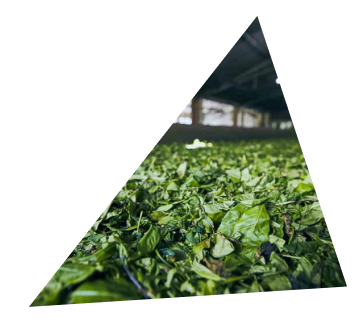-min.jpg)
and reduce your supplier search to 2 minutes.
 Description
Description
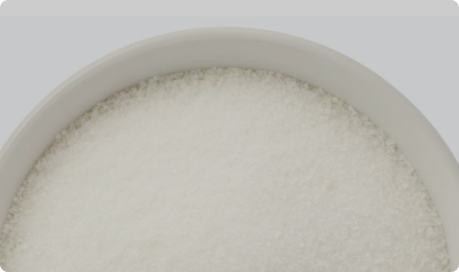 What advantages Xanthan offers the food industry
What advantages Xanthan offers the food industry
 E415 Xanthan offers a wide range of applications
E415 Xanthan offers a wide range of applications
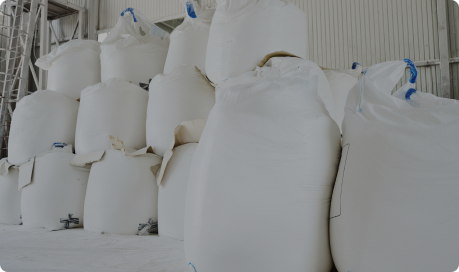 Thickeners & Gelling agents on LEROMA
Thickeners & Gelling agents on LEROMA
 Description
Description
 Impact of Xanthan Gum on the market for thickeners
Impact of Xanthan Gum on the market for thickeners
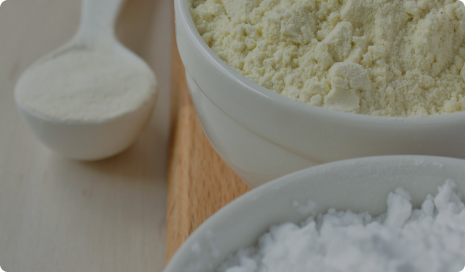 Thickeners: ecological and economical sustainable?
Thickeners: ecological and economical sustainable?
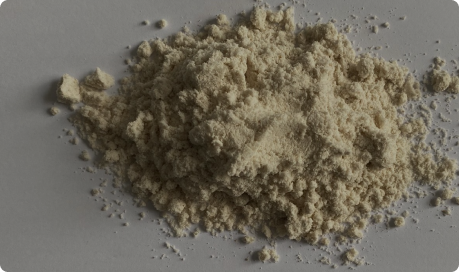 New Xanthan Replacer - substituting Xanthan Gum
New Xanthan Replacer - substituting Xanthan Gum
Gelling and thickening agents are used with the aim of achieving a specific
texture or consistency and influencing mouthfeel. They can also prevent or slow down undesirable
separation processes, such as the settling of particles, or imitate a fatty
consistency in light products. If the food additives are indigestible, they are counted as
dietary fibers.
Xanthan Gum, a naturally occurring polysaccharide, is approved in the EU under
E415. Xanthan Gum consists of D-glucose, D-mannose, D-glucuronsoic acid, acetate and pyruvate. B2B suppliers and producers sell the odorless, slightly yellowish powder, which is
suitable for vegetarian and vegan products in most cases. The shelf life of the thickener is about 2 years.
Xanthan Gum is characterized by several properties that should be taken into account in food technology and product development of B2B companies, some of which offer great advantages:
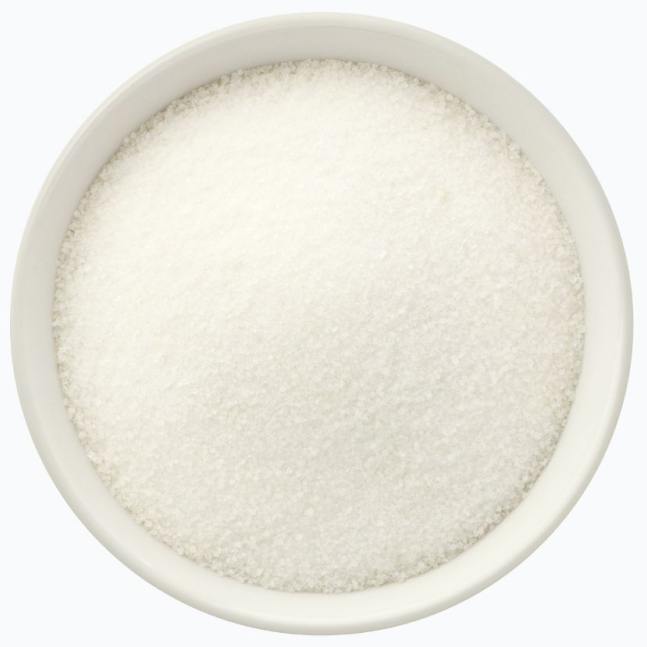
E415 Xanthan Gum is also known as Xantan, E415, Xanthan and
CAS 11138-66-2.
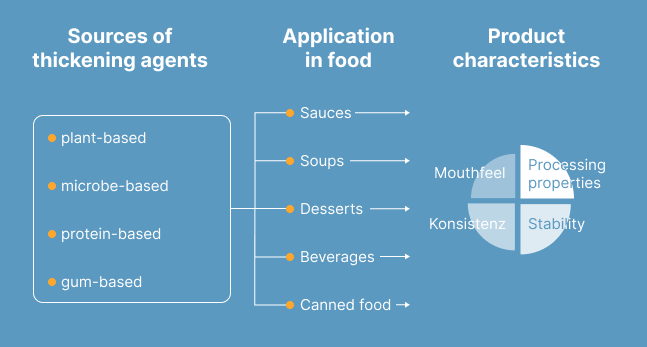
E415 Xanthan Gum is used in the food industry mainly as a
thickener and gelling agent. However, it can also be used as an
emulsifier and bulking agent. In addition, it helps to
increase the viscosity of foods.
In the food industry, E415 Xanthan Gum is used in the production of baked goods, mustard, vegetarian foods, desserts, ice cream, milkshakes, jellies, jams, jams, sour vegetables, soups, sauces, ketchup, mayonnaise, canned fish, canned meat, baked goods, canned fruit and canned vegetables.
In recent years, the use of Xanthan Gum has also become more popular in other industries. Customers of B2B suppliers and manufacturers of Xanthan Gum also include companies in the
medical and cosmetic industries. Xanthan Gum can be used in cosmetic products such as toothpaste, creams & lotions, shampoo, liquid soaps, mascara and lubricants, as well as in detergents, coating, wall and printing inks, plasters and cement mortars. Other applications include coatings, binders, adhesives and wallpaper pastes, polishes, inks and explosives.
E415 Xanthan Gum
significantly influences the thickener market, as it is a widely used and versatile additive that improves the texture and stability of many foods.
Alternative thickeners such as
guar gum,
carrageenan,
agar agar,
Gum Arabic,
pectin,
corn starch and
tapioca starch are also popular, but in some cases do not offer the unique functional properties of Xanthan Gum. However, its popularity has driven
innovation and competition in the market for other thickeners.
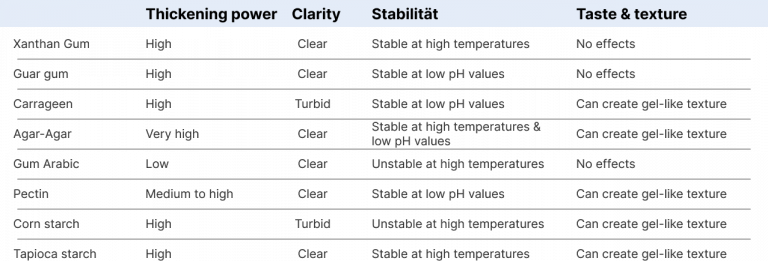
The market for thickeners is driven by the
increasing demand for convenience foods and ready-to-eat meals as well as the growing popularity of
gluten-free and plant-based foods. Another trend is the
rising demand for functional foods and beverages, which has led to the development of new and innovative thickeners that offer a range of health benefits.
Thickeners such as Xanthan Gum are offered by a
variety of small and medium-sized companies and a few large producers. Major suppliers of thickeners include Cargill, Ingredion, DuPont Nutrition & Biosciences, and Tate & Lyle, among others.
Challenges in sourcing thickeners include
fluctuations in availability and prices, which can be caused by geopolitical issues or price volatility and supply chain disruptions of raw materials. Especially with natural gelling agents,
quality and consistency can vary, and
regulatory requirements must always be met. The growing interest in sustainability on the part of end consumers is ensuring that
sustainably produced and plant-based thickeners are increasingly used in food production.
Thickeners have both positive and negative impacts in terms of environmental sustainability.
Starch, for example, is obtained from plants such as corn, potatoes or wheat, which often
cause high environmental pollution when grown conventionally.
Gum Arabic, on the other hand, is derived from the sap of acacia trees, which grow in semi-arid areas and
require little water.
Xanthan Gum is produced by fermentation of carbohydrates by bacteria and is therefore a
more sustainable thickener. It is important to note that each thickener has its own advantages and disadvantages, and that choosing the right thickener depends on several factors, such as the type of food, desired texture and viscosity, and cost.
Regarding economic sustainability, food thickeners such as starch, Gum Arabic and xanthan gum have many advantages. These thickeners are
cost-effective and can be
used in many food products to improve their texture, consistency and shelf life. This is especially important for foods that require longer transportation and storage times, such as processed foods and frozen products. Using thickeners can also help food manufacturers
reduce the amount of food waste, as thickeners can help make foods last longer.
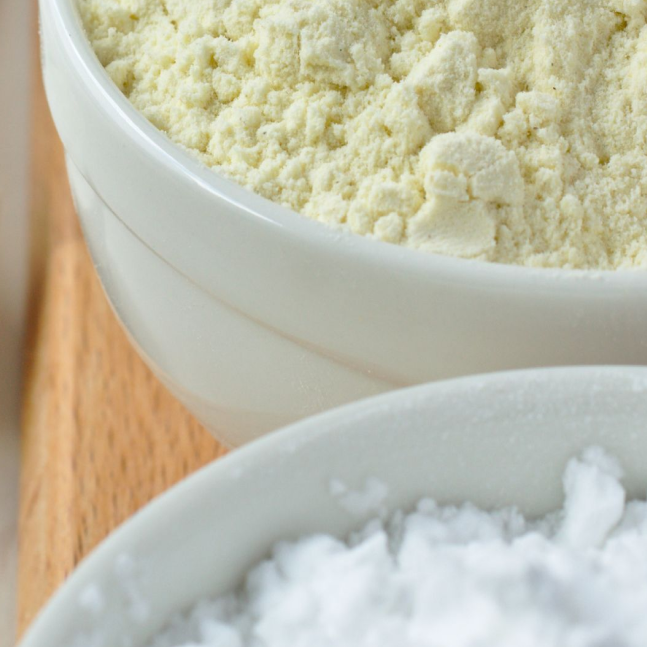
Overall, food thickeners such as starch, Gum Arabic and Xanthan Gum have both environmental and economic impacts. While they can be beneficial in food production, they must also be
used with caution and responsibility to ensure sustainable and environmentally friendly production. In addition, consumers should be aware that not all thickeners are created equal and some may have undesirable health effects.
.png)
Due to the scarcity of Xanthan Gum, many food producers are looking for alternatives. The newly developed product consists of three raw materials:
Konjac flour, peels of various spices and sugar variants.
Due to the high fiber content of the spice peels,
liquids thicken in the cold processing state. In the warm state, the konjac flour forms
synergies with the hydrocolloids present in the formulations or products, or brings the product to a solid structure on its own. Since excellent binding can be achieved with thermostable processing methods, the three ingredients are particularly suitable as an alternative to Xanthan Gum.
Xanthan Replacer also contains
no allergens, as no mustard is added, for example.
Xanthan Gum is often used in a proportion of up to 20% in a product. The newly developed Xanthan Replacer can
replace up to 50% of the other hydrocolloids in the formulation (carrageenan and other gums). The Xanthan Replacer also offers
other advantages for food production:
The only thing to note is that the Xanthan Replacer is
not white and can therefore distort the color of pure white foods. Therefore, the thickener is suitable as an additive in differently colored products, for example in sauces.

